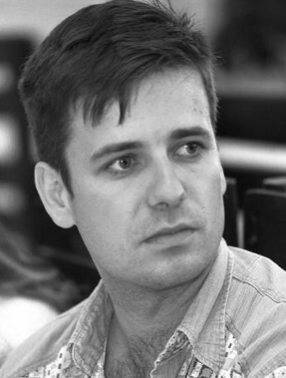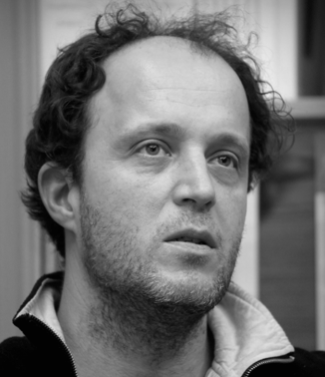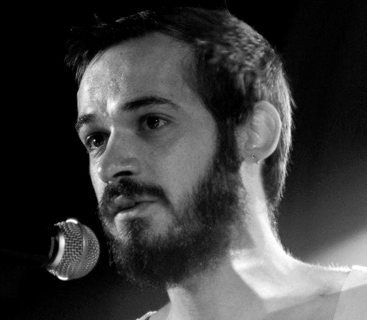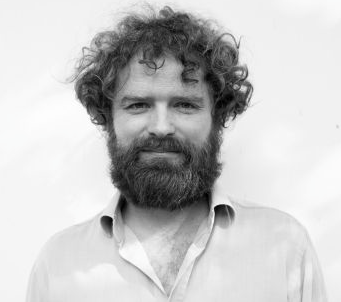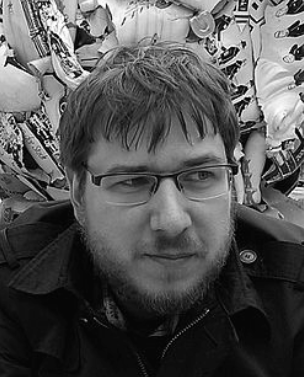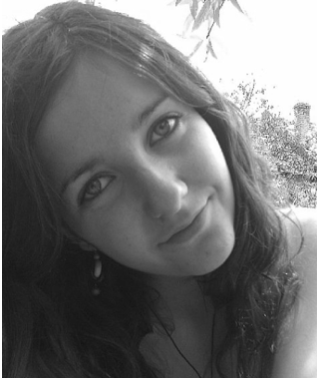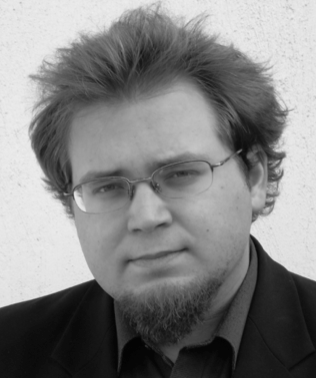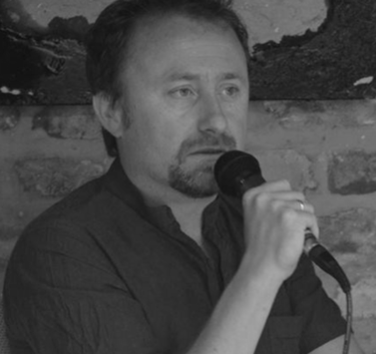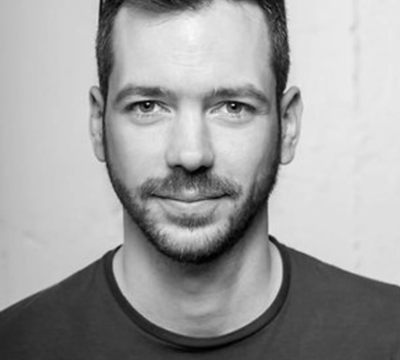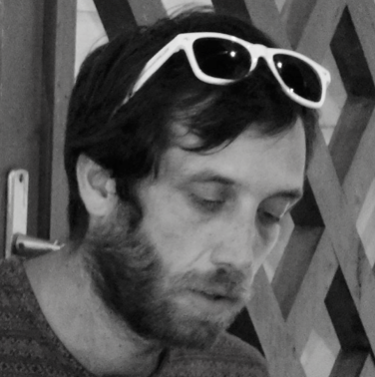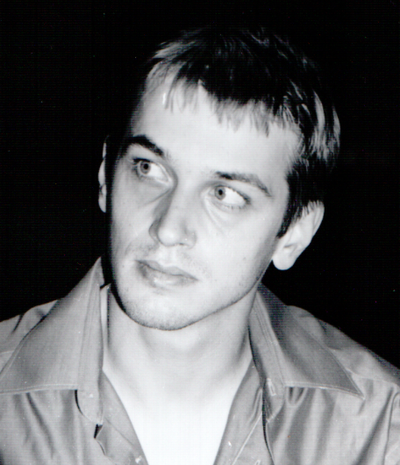Issue XXVII July 2018
Poetry from Hungary
edited by Lanczkor Gábor
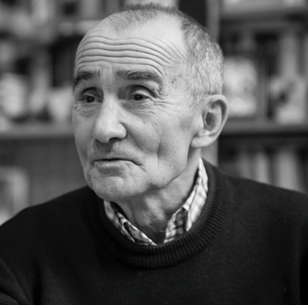 János Marno (Enchanting Poet for ISSUE XXVII) János Marno (Enchanting Poet for ISSUE XXVII)
Metamorphoses
“skeleton bird at four in the morning” Giacometti “Death, thou shalt die!” John Donne “Ich freue mich auf meinen Tod.” J. S. Bach My death bores and disgusts me. I slip on the stairs of a basement shop, basal skull fracture, my mouth is left ajar, my soul flies out with a fly’s sigh, to then crawl back into the black hole as a carrion fly, to lay its eggs under the dead tongue. Black soldiers gather into formation, to my torment, in the morning fog, they remind of the dead, of whom I took leave last night at the coffeehouse, even though I am not a coffeehouse person, that lifestyle is alien to me, more alien than life itself. I prefer my words raw, to turn them long in myself, to spike them with my tongue onto my two eye-teeth, then to become helpless with them in my mouth sitting at a small table, not even minding if at times they press directly into my face, appearing brave and destitute. Donne was wrong: Death is ever- lasting, only we, risen to life, are capable of dying, to stretch out on our red board one morning, skeleton birds are circling around our spine, and as we begin to recognize our old Chestnut Park, we would rise again, and start walking around, and it doesn’t happen; our legs don’t carry us back, or forward, the marrow under our skull is parched, which is to say: our brain has become clay, the cortex is like tile, chapped, we are unwell, it’s time therefore to stop the piggeries. It’s time to die properly, to return to our quarters, under our tongue, where amidst wanton sighs and moans we laid our eggs in our dream. The black soldiers received rabbit goulash with savoy cabbage stew, the smell is still thick in the fog, which seems never to rise again. I am distrait and ever more sullen. Read More...  János Térey (Editor's Choice) János Térey (Editor's Choice)
Sonja’s Journey from the Saxonia Cinema to Pirna Square
Statistics are not available. We shall never know the number who made love In Dresden that night. Who, in what positions, what bedrooms? The air-raid warning was shrill, no doubt, But those bodies stayed together, They pressed upwards, towards the sky, Somewhere only halfway Along the winding road. Many wouldn’t draw apart even then. Sonja Dressler and Veronika Möhring, for instance. Sonja, a refugee from Breslau, Shop assistant, sixteen years old, Arrived here in town on Mardi Gras. Glitter showers into her face, confetti down her neck. It’s carnival time for children everywhere, They stretch paper streamers across the road And respond with noisy jubilation When a passing tram breaks Their sky blue finishing tape. Read More... |
This collection offers a special view of contemporary Hungarian literature for English-language readers. It contains the texts of three elder poets (István Kemény, János Marno, János Térey) who had a fundamental influence on the ways of thinking and writing of most of the younger generation authors whose texts are here as well. This influence is elusive in many ways and all the poets in this volume have their own distinctive voice.
Emerging literature of the 21st century in Hungary is really versatile, so it’s difficult to talk about rigid tendencies – but we can state that all the authors represented in this anthology are part of a kind of rehabilitation of a poetic manner that takes its tone and its themes severely – new seriousness, this was one of the labels on a group of poets who are now in their late thirties; irony, pastiche and playing with words is not completely missing from their works – but it’s not emphasised as much as it was for the former generation, the poetry of the ‘90s, which was the last wave or last peak of the so-called postmodern poetry and literature in Hungary. This poetical attitude derived from the political changes of Hungary: after 1989, the transition from the closed communist system to global capitalism and the optimistic feelings about it in Hungary made most of the actors of the mainstream literature think that there is no need for literature to be an oppositional voice against to suppressive communist dictatorship any more, and turned to playfulness and promotion of liberal values in itself (another part of the scene, however, remained with focus on more traditional and conservative poetry, preserving the romantic role of the poet in their works, which generated two main oppositional parties also reflecting the Hungarian political scene). Naturally, the new generations starting their works in the late ‘90s and early 2000s, who grew up mainly in the new global position of Hungary, had more opportunities to have influences from other languages and refused to position themselves in the dualist and politically driven tendencies of literature they inherited. General interest of the authors on the first decade turned on individual issues in the manner of new seriousness mentioned earlier (e.g. Dénes Krusovszky, Márió Nemes Z., Márton Simon), focusing on family matters and poetics of the body. Ironically, the election of the so-called right wing which still governs the country generated a huge debate about the existence and possible roles of “political poetry” in the early 2010s on the so-called “liberal” side after some poems published by influential poets János Térey and István Kemény, whom we feature in this collection as well. The newest generations of Hungarian poetry publishing their first books in the 2010s, however, disregard this kind of discussion, by having a deep interest in community, gender and socio-cultural issues (just some examples: Tibor Juhász, Mónika Ferencz, and Csilla Hajnal Nagy) and including these topics in a very natural manner to their poetry, not reflecting them as something to be divided. Some of them, like Benji Horváth feel so home on international levels that they write and perform in English, which – with some rare exceptions – was almost impossible to even imagine for earlier generations, Hungarian language and Hungary being so closed to speakers of other languages. The diversity of topics and voices of a language spoken by a relatively small population (the number of Hungarians all around the world doesn’t exceed 15 million) may be surprising for English-speaking readers, and have some factors besides the rapidly changing circumstances the latest generations grew up in, which we discussed above. It has to be mentioned here that the very source of Hungarian literature – just as all of Central and Eastern European literatures – comes from the romantic period of history and is strongly connected to nation-building and preserving the language as the main source of identity – though we have major poets from the earlier centuries too. In this concept, the poet is considered almost as a priest of this preservation of language and poetry being the highest-profile expression of how the people of Hungary live and feel. While modernism and the 20th century poetry already questioned this position and late-20th century poetry radically refused to behave in this formerly expected way, remains of this educational and/or prophetic attitude still pop up in some of the oeuvres in a direct or transformed way, and a large proportion of the audience still expects it. Thus the position of the poet and the articulation of poetry is already at least in the background of the poem itself, contributing to the exciting dynamics in the works of the poets featured in this anthology. Different traditions of poets are also lay in other historical reasons, namely the peace treaty signed in Trianon after the First World War, which ended the existence of the Austro-Hungarian Empire and divided it into smaller nations-states. While there were some changes in the borders in the next two decades, the end of the Second World War confirmed the treaty and fixed the borders of present-day Austria, Slovakia (then part of Czechoslovakia), Ukraine (then part of the USSR), Romania, Serbia, Croatia, Slovenia (the latter three then part of Yugoslavia). As all of these new countries had smaller or bigger Hungarian minority communities which – especially during the communist period – did not have the possibility to communicate with each other as earlier, the regionally and formerly fragmented Hungarian literature turned out to become Hungarian literatures, bringing a diversity of the respective Hungarian literature in different countries, with different traditions, different influences, and different ways of thinking about the role of poetry. For example, Transsylvania, now part of Romania, already had its own tradition of writing, strongly derived from the mainstream of Hungary by preserving some poetical tendencies not so important for those poets living in Hungary. Hungarian literature in Yugoslavia (mostly in Serbia because of the biggest Hungarian community living there) had an opportunity to have a stronger influence of Western literature because of political reasons, and meeting the (post-)Yugoslavian poetry, had a much stronger attachment to avant-garde than any of the other Hungarian literatures. We can also talk about the aesthetics of dissident literature by artists seeking asylum from the Nazi and communist regimes in the 20th century. This, however, faded and has little contribution to the diversity of Hungarian literature nowadays. The importance of the internet obviously is high in a literature with so diverse and colourful range of voices. The generation emerging after 2010 uses it intensely and makes the network of voices even more horizontal than earlier. The opening of the borders after 1989 and the admission to the European Union make these connections even more vivid, creating new opportunities to connect with various aesthetics of Hungarian literature. Influence of regional traditions of literature are very plausible and motivating for this generation. In the anthology we also feature poets originating from, or still living in Slovakia (Zoltán Csehy, Hajnal Csilla Nagy), Romania (Benji Horváth) and Serbia (Krisztián Tóbiás, Árpád Kollár, Roland Orcsik). Like all anthologies, this one also remains fragmented. The limits of length – and, sadly enough, the lack of English translations – do not let us present the whole palette of Hungarian literature of the past decade. This also stands for this foreword, where we have attempted to give at least a fragment of the frame of the historical and aesthetical background of the texts presented on the next pages. Still, we do believe that the readers will have more than just a glimpse of tendencies of contemporary Hungarian literature by taking this compilation in hand. |


